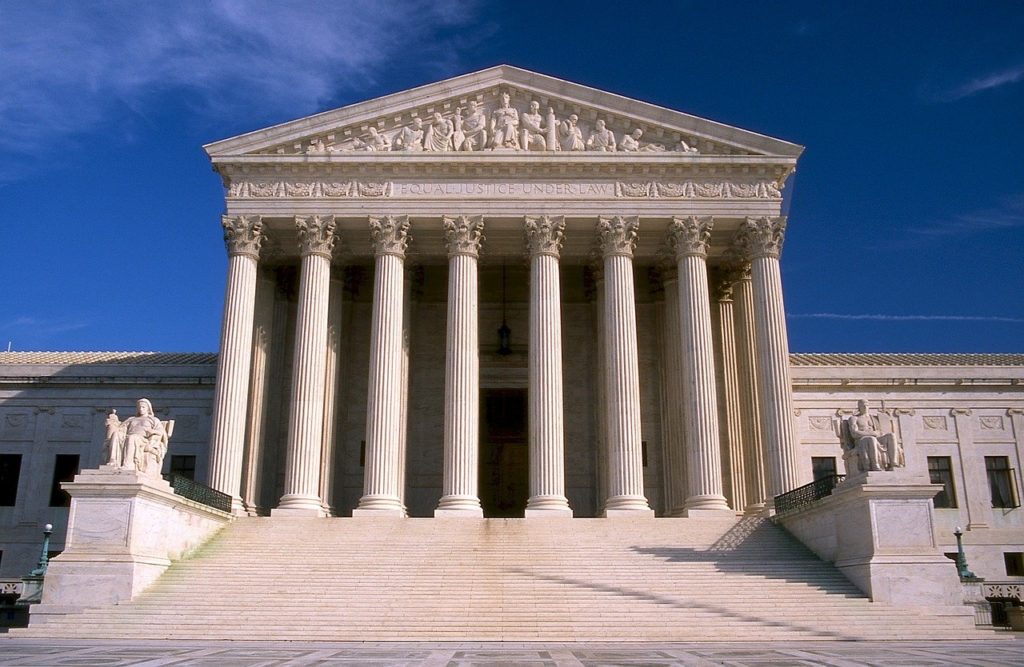The U.S. Supreme Court is mulling whether it will hear arguments in a False Claims Act (FCA) case involving the hospice provider Care Alternatives. FCA actions pertaining to hospices most commonly focus on questions of a patient’s eligibility for those services.
A 2019 report from the law firm of Bass, Barry, and Sims indicated that a leading cause of fraud cases involves allegations of hospices billing Medicare for services for which patients were not eligible. This resulted in several multi-million dollar settlements during 2018, with amounts ranging from $1.24 million to $8.5 million.
Hospice advocacy groups have filed an amicus brief in the case supporting Care Alternatives, including the National Hospice and Palliative Care Organization (NHPCO), along with National Association for Home Care & Hospice, American Health Care Association, American Academy of Hospice and Palliative Medicine, and American Medical Association.
“[The U.S. Centers for Medicare & Medicaid Services] and Congress have supported the authority of physicians to determine hospice eligibility. Clinical judgment should reside with physicians and should not be subject second guessing by juries. This threatens the sanctity of one of the most important relationships patients have when they have a serious illness,” said NHPCO President and CEO Edo Banach.
In the case, United States ex rel. Druding v. Care Alternatives, the Third Circuit Court of Appeals ruled that when a reasonable difference of opinion occurs between physicians concerning a hospice patient’s prognosis, it can be resolved by a jury.
The appellate court’s finding conflicts with a precedent decided earlier this year, United States v. Aseracare, Inc. In that case, the 11th Circuit Court of Appeals in September agreed with the Northern District of Alabama that a difference of physician’s opinions on a terminal patient’s prognosis does not indicate falsity under the FCA.
Following the conclusion of that case, home health and hospice provider Amedisys (NASDAQ: AMED) acquired AseraCare for $235 million.
Hospice organizations nationwide are under increasing legal and regulatory scrutiny related to medical necessity complaints under the False Claims Act. While fraud does occur in some instances, some feel that the prevalence of these cases could adversely impact patients’ access to hospice.
“To allow false claim act liability in a situation where you have reasonable physicians who differ on opinions of treatment or prognosis will undoubtedly send a chilling message to physicians and hospice care organization. Physicians need to be free to exercise their reasonable judgment, even if such a judgment is ultimately wrong, and sometimes 20-20 hindsight may prove it was wrong,” said Nick Jurkowitz, partner at California-based Fenton Law Group. “A ruling such as what occurred in the Court of Appeals in the case, would likely send the message to physicians that your reasonable judgment is no longer sufficient. Now, you must make sure that no other physician would disagree with you. This could unfortunately cause a physician to take a much more conservative approach to hospice care, which could have a detrimental effect on what is best for the patients.”
The amicus brief filed by industry groups calls for the Supreme Court to review the case. Generally speaking, these filings can have an impact on the outcome of legal proceedings.
“Amicus briefs, which are briefs filed by non-parties to an appeal, are important additions to the legal briefing that can be critical to the outcome of the court’s decision. In addition to raising arguments and legal theories sometimes not addressed by the actual parties, Amicus briefs also allow the court to analyze real world ramifications of the decision, as many amicus briefs are written by organizations that will be directly impacted by the court’s decision,” Jurkowitz told Hospice News. “Since the Supreme Court only agrees to hear a very small fraction of the cases that seek review before it, amicus briefs, can also persuade the Supreme Court that a case is significant enough to warrant its attention.”
Companies featured in this article:
Amedisys, American Academy of Hospice and Palliative Medicine, American Health Care Association, American Medical Association, AseraCare, Bass Barry & Sims, Care Alternatives, Fenton Law Group, National Association for Home Care and Hospice, National Hospice and Palliative Care Organization



